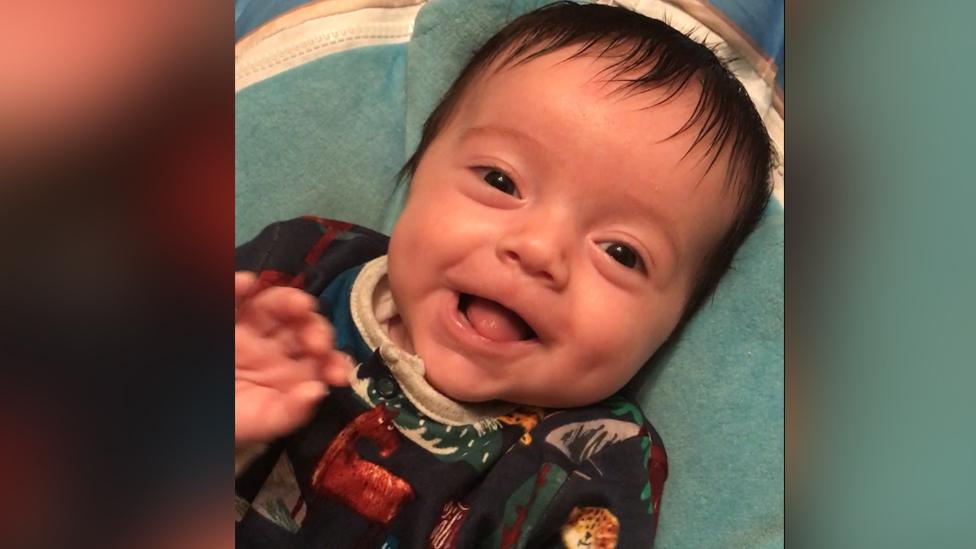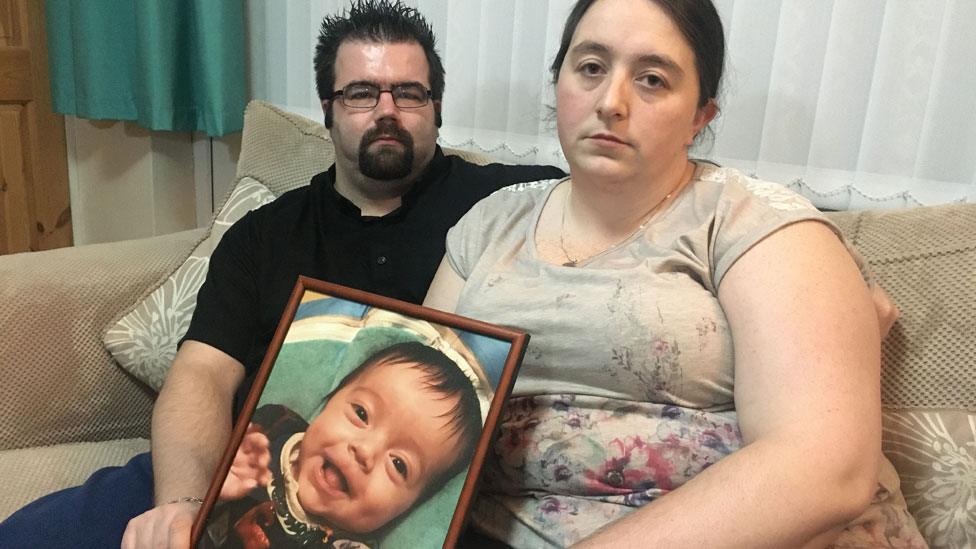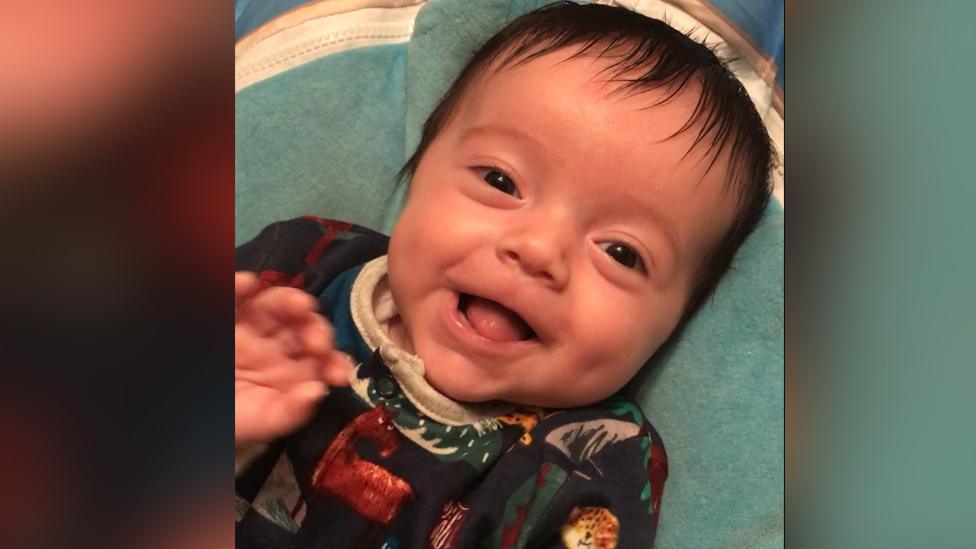Sepsis baby death: 'Missed opportunities' to treat Lewys Crawford
- Published

Lewys Crawford died a day after he was taken to A&E
Medics missed several opportunities in the treatment of a three-month-old boy who died of sepsis in hospital, an inquest has heard.
Lewys Crawford died of meningococcal septicaemia at the University Hospital of Wales, Cardiff, in March 2019.
An expert said he should have been given antibiotics "within an hour" but there was a seven-hour delay.
There were "four missed opportunities to render care to Lewys", the inquest was told.
Helen Fardy, consultant paediatrician for 20 years, said Lewys was in the high-risk category for sepsis, according to National Institute for Health and Care Excellence (NICE) guidelines.
He was not given antibiotics for about seven hours despite a nurse suspecting he may have had sepsis when he was brought to A&E on 21 March 2019.
Dr Malcolm Gajraj, another paediatrician who treated Lewys, said he responded "very little" to intensive care treatment.
The inquest heard there were "four missed opportunities to render care to Lewys".
Dr Fardy said: "We felt there had been several missed opportunities to adequately manage Lewys' condition."

Lewys's parents Aidan Crawford and Kirsty Link want to know why there were delays in treating him for sepsis
The inquest heard Dr Gajraj handed over care of Lewys to Dr Fardy and they were concerned "Lewys was extremely sick".
Fluid was leaking into Lewys' abdomen and pushing on his lungs, and he had multi-organ failure.
Dr Fardy said: "We were managing him at a very sick level, but we weren't really making any progress and that was because his inflammatory response was continuing, and in current times there is no way of switching that process off."
Lewys died at 23:10 on 22 March and the cause of death given by Dr Fardy was meningococcal septicaemia.
The inquest heard after Lewys had died there was an "improvement" in people adhering to protocol, but it had "tailed off more recently".
In response, Dr Gajraj said: "If that was the case we would look to address that."
Dr Gajraj said sepsis used to be more common, but because there were fewer cases now, he suspected "awareness is diminishing of it in trainees".
'Delay in treatment'
Coroner Graeme Hughes said there was a seven-hour delay between Lewys' admission to hospital and the administration of antibiotics.
Dr Fardy said when she took over Lewys' care "there appeared to be some concern that there had been some delay in treatment".
She added: "We were aware that the nursing teams had actually escalated the case for investigation at that time."
She said: "We felt that it was important to us to refer the case".
The inquest heard the NICE guidelines would have indicated Lewys be "treated with a degree of urgency".
Dr Fardy said when Lewis was initially assessed by another doctor and he had a temperature of 39C, there was a "missed opportunity" based on NICE criteria.
She said: "I would have been thinking that bacterial infection and possible sepsis should have been at the top of the list."
The inquest continues.
- Published11 February 2020

- Published10 February 2020
